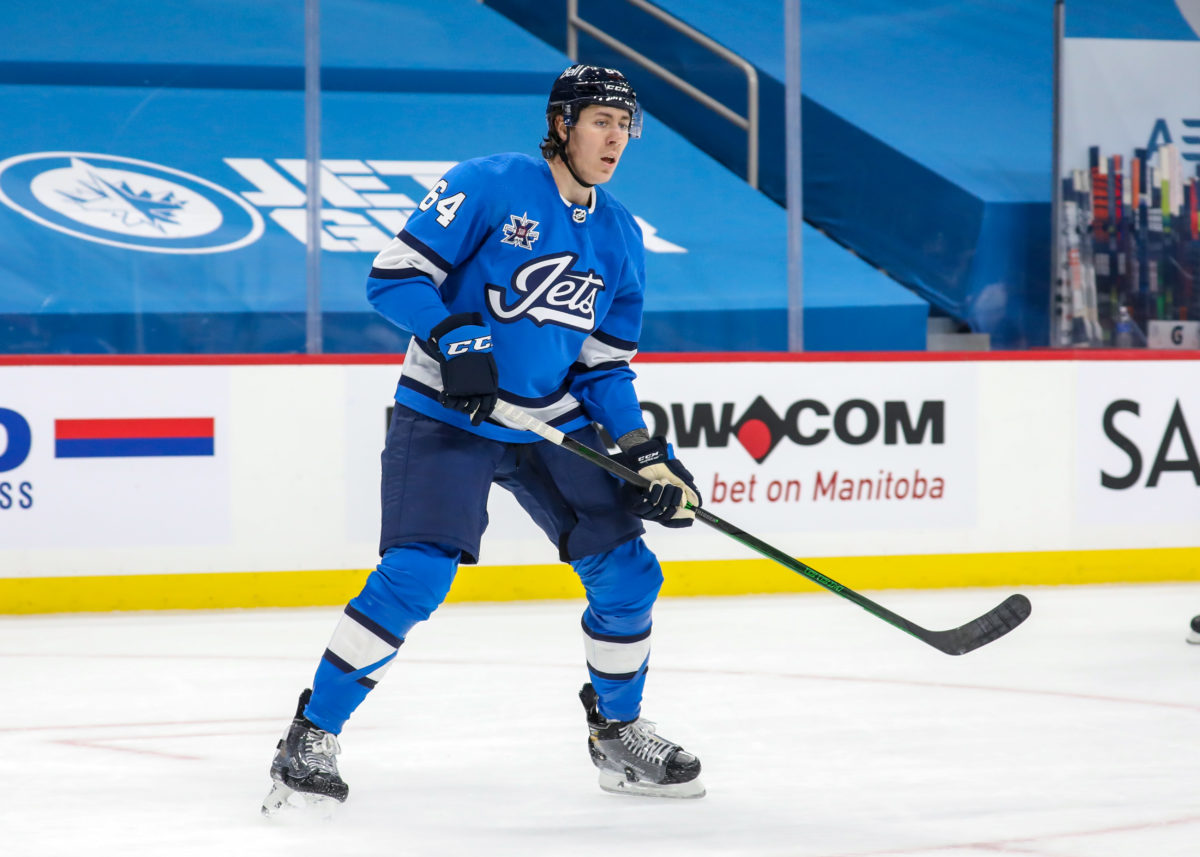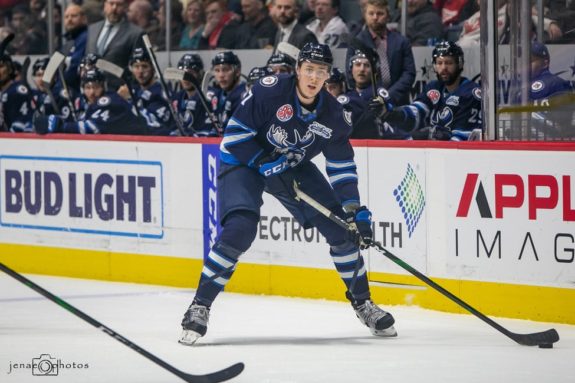Since the departure of longtime Winnipeg Jets defenceman Dustin Byfuglien, the defense has been a combination of emerging stars, serviceable players, and temporary solutions. Don’t get me wrong, Josh Morrissey and Neal Pionk continue to rise to the occasion, and Tucker Poolman and Dylan DeMelo are decent options. But, for the most part, the Jets’ backend has been a revolving door of names; Dmitry Kulikov, Luca Sbisa, and Nathan Beaulieu have all tried to solidify their roster spot over the past couple of seasons.
With plenty of faces that made cameos on the blue line, it’s not surprising that the Jets’ defense has consistently held them back from achieving more. However, the emergence of Logan Stanley during this unprecedented season has perhaps kickstarted a changing of the guard, where a balanced blue line compliments an elite offense and homegrown prospects thrive at the NHL level.

Stanley’s breakout could not have come at a better time, as early-season injuries and Covid-19 complications forced Winnipeg to experiment with their defense. After outperforming both Ville Heinola and Sami Niku in early season auditions, Stanley ran with the opportunity to become a mainstay within the defensive structure by the midway-mark of the season.
Now being used in a high-leverage role, Stanley’s development this season has not only been impressive but it’s also brought a new sense of optimism around the team.
A Rookie Season to Remember
The 18th overall pick from the 2016 NHL Entry Draft took the standard path to the NHL compared to many others: after a couple of seasons in the Ontario Hockey League, splitting time between the Windsor Spitfires and Kitchener Rangers, and then a couple of seasons with the Manitoba Moose, Winnipeg’s AHL affiliate, Stanley made the jump to the show.
However, with a crowded prospect pool, it seemed Stanley was falling lower and lower down the depth chart. Heinola wowed the organization during his short stint last season, while Dylan Samberg was eager to contribute after signing an entry-level contract, and Niku already had a handful of NHL games under his belt, so the chances of making the NHL roster didn’t seem promising for the Kitchener-native.

Still, following some surprising decisions by management to sit both Heinola and Samberg (and eventually Niku after a few disappointing games), Stanley’s opportunity arrived, and he seized it during a hectic season.
After making his NHL debut against the Toronto Maple Leafs in January, Stanley notched plenty of firsts during the 2020-21 season, dropping the gloves with Vancouver Canuck Zack MacEwan in March for his first NHL fight and potting his first career NHL goal three days later against the Calgary Flames.
Using his monster 6-foot-7 frame, Stanley is a defensive-minded presence on the Jets’ blue line and a perfect complement to round out the third pairing. With Morrissey and Pionk shouldering most of the workload, Stanley’s role suits him perfectly, and the Jets don’t need him to be something he isn’t. Winnipeg needed him to play a sound defensive game, chip in when he could, and remain consistent. He has checked all three boxes as his memorable rookie season continues.

Despite watching the odd game from the press box, Stanley established himself as a consistent defenseman as the season continued, seeing a gradual yet significant jump in his ice time (from around 13 minutes to roughly 18 minutes per game). His intangibles, including his size and defensive awareness, have been the gift that keeps on giving for the Jets this season, especially when the team needed a reliable presence on the backend he towered above the competition.
Stanley’s Advanced Stats Point in the Right Direction
Before we get too excited, Stanley’s advanced metrics aren’t outstanding. In fact, they’re average amongst NHL defensemen. But for a rookie defenseman who hasn’t played half an NHL season yet, the numbers represent a promising future for the 23-year-old.
Stanley’s key to success is through possession. Maintaining control in his own end, limiting chances, and executing breakouts are his primary responsibilities, considering he averages the least amount of ice time amongst Jets defensemen. With a Corsi for at 50.6 percent, the Jets are benefiting from having Stanley on the ice, particularly when it comes to shots and puck possession.
Stanley’s role has also evolved in his rookie campaign. During the regular season, his zone starts percentages were relatively balanced, with a 49.4 offensive zone start percentage (oZS%) compared to a slightly higher 50.6 defensive zone start percentage (dZS%). He is being utilized in a variety of roles, which makes his possession game all the more impressive, especially considering he starts in the defensive zone more than half the time.
While 37 regular-season games is a small sample size for the young defenseman, Stanley’s advanced metrics show consistency and potential. He might not be the flashiest player on the ice or have numbers that jump off the scoresheet, but the Jets have discovered that when he’s in the lineup they get consistency and versatility above anything else.
What’s Next For Stanley and the Jets?
From being a healthy scratch early in the season to defending against Connor McDavid in the playoffs, it’s been a memorable season for Stanley, one that hopefully continues long into the summer. For a 23-year-old who seemed to be at the back of the line when it came to making the NHL, he has proven why his arrival was worth the wait.
With his size and defensive awareness, Stanley has the numbers to prove that he’s here to stay, and he’s earned the trust of his coaches and teammates. The Jets have been searching for defensive consistency over the past few seasons, but now that “Big Boy” Logan Stanley has arrived, things seem to be a little less uncertain.
What are your thoughts on Stanley’s rookie season? Where does he fit in in regards to Winnipeg’s plans for the future? Let me know in the comments.